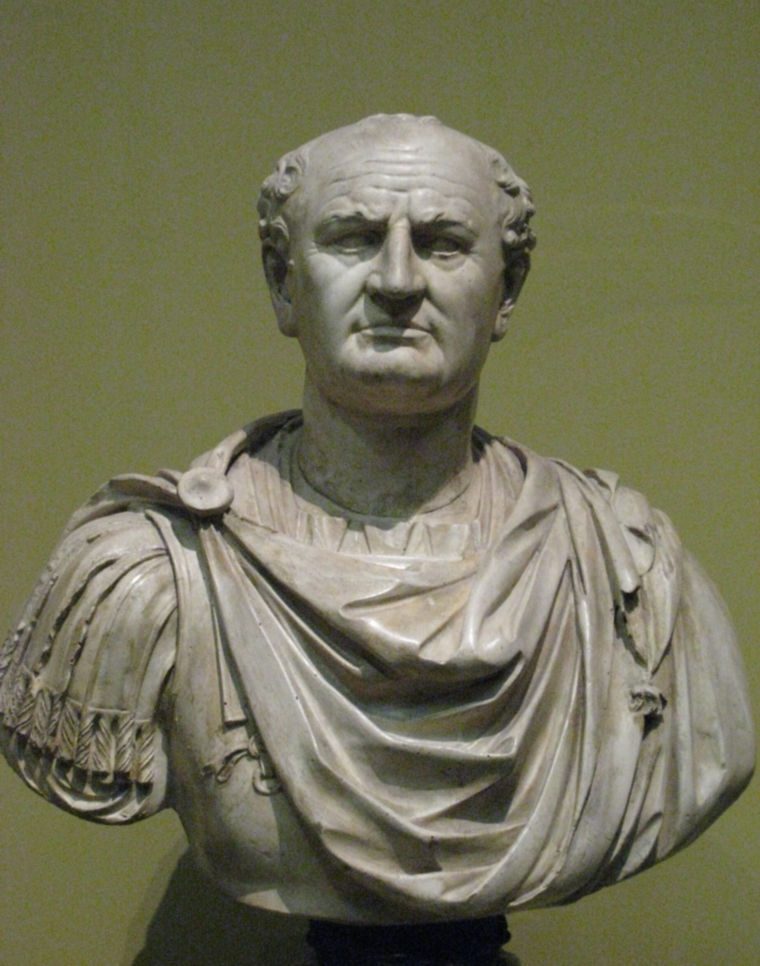Pecunia non-olet: Vespasian and the Smell of Money
- ptcrawford
- Oct 5, 2025
- 2 min read

After his takeover of the Roman Empire during the Year of the Four Emperors (AD 69), Vespasian and his advisors sought any avenue of raising taxes. One seemingly unsavoury tax they (re-)employed in AD 70 was the vectigal urinae that the emperor Nero may have used briefly a decade earlier.
This was a tax on the contents of public urinals in Rome. Initially this would seem like a charge to use public urinals; however, instead it was a tax levied on those who purchased the urine… But who would want to buy urine? The ammonia in urine made it useful to tanners for softening animal hide, launderers for cleaning, bleaching and dyeing clothes, and it was an ingredient in ancient tooth-whitener… (yuck!)
Despite it being a large-scale industry, Vespasian’s son and eventual successor, Titus, took exception to what he considered a degrading way for the imperial exchequer to make money.

“Titus complained of the tax which Vespasian had imposed on the contents of the city urinals. Vespasian handed him a coin which had been part of the first day’s proceeds: ‘Does it smell?’ he asked. And when Titus said ‘No,’ he went on ‘Yet it comes from urine.’”
Suetonius, Vesp. 23.3
“And to Titus, who expressed his indignation at the tax placed upon public urinals, - one of the new taxes that had been established, - he said, as he picked up some gold pieces that had been realized from this source and showed them to him: ‘See, my son, if they have any smell’”
Cassius Dio LXVI.14.5.
From these two ancient sources arises the phrase ‘Pecunia non olet’ – ‘Money does not smell,’ which is still used today with regards to how money remains of the same value no matter its origins, illicit, disgusting or otherwise.
This meaning was also reflected in Juvenal’s refrain that “the smell of gain is good whatever the thing from which it comes” (Juvenal, Satires XIV.204) is getting close to Gordon Gekko’s “Greed, for lack of a better word, is good.”
Even though it seems that he did not originate the vectigal urinae, Vespasian's name became attached to public urinals, which are still called vespasienne and vespasiano in France and Italy respectively.

Vespasian’s pecuniary urinary quip has passed into the vernacular with many writers of various philosophical and literary genres making use of it: Karl Marx, Das Capital I.3; F. Scott Fitzgerald wrote of “non-olfactory money” in The Great Gatsby; C.S. Lewis has one of his characters, the Warden of Bracton College, receive the nickname ‘Non-Olet’ for writing a report on National Sanitation in That Hideous Strength; while Honore de Balzac’s Sarrasine and Robert Penn Warren’s All The King’s Men comment on suspect wealth by invoking Vespasian.
![“What a [Herculean] Manoeuvre!”: Inventing the Bear Hug](https://static.wixstatic.com/media/a3d50b_8b9ad5c763e042409eb39fc07801a1a2~mv2.jpg/v1/fill/w_800,h_1339,al_c,q_85,enc_avif,quality_auto/a3d50b_8b9ad5c763e042409eb39fc07801a1a2~mv2.jpg)


Comments